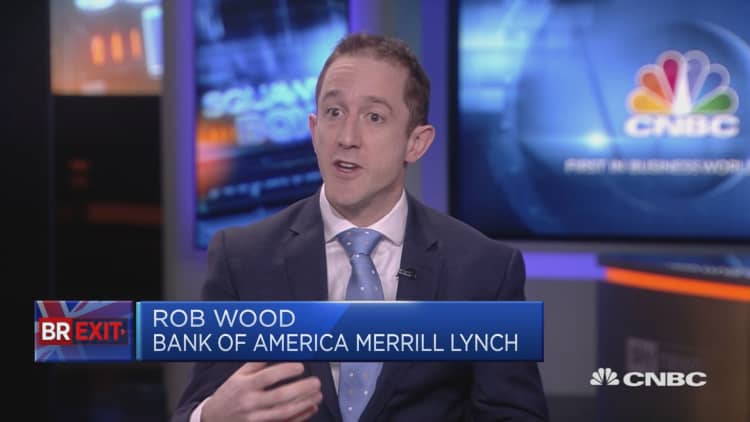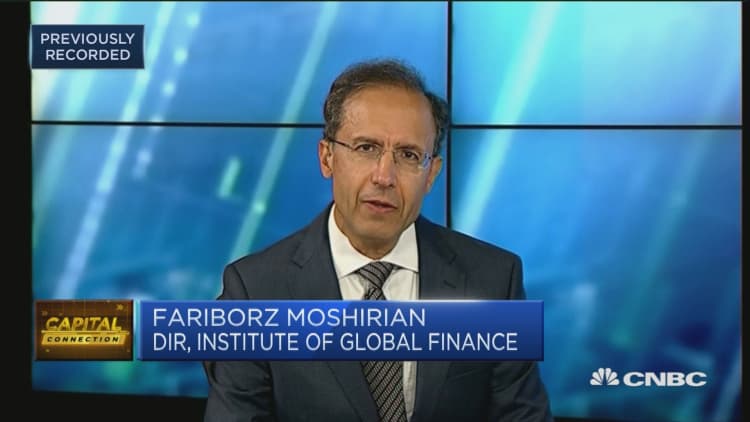Sajid Javid has resigned as the head of the U.K.'s finance ministry, surprising financial markets and political pundits in the country.
He has served as finance minister (known as the Chancellor of the Exchequer in the U.K.) since July, when Boris Johnson was first appointed prime minister. He will be the shortest serving U.K. finance chief since 1970.
Javid — the son of a Pakistani bus driver who previously served as home secretary — was due to present Britain's budget in March, the U.K.'s first after its departure from the EU last month. The resignation comes as Johnson was making changes to his Cabinet on Thursday where the U.K.'s attorney general, Geoffrey Cox, also resigned.
Media reports suggest that Javid was offered the chance to remain finance minister on the condition that he fires all of his advisors. He reportedly said no and opted to resign himself.
There had been growing tensions between the finance minister and the prime minister's inner circle, in particular ahead of the budget release in four weeks' time. According to the Financial Times, allies of the prime minister dubbed Javid "Chino," meaning chancellor in name only.
Rishi Sunak, who has served as chief secretary to the Treasury since July 2019, will step into the role.

UK yields rise
The U.K. left the European Union on January 31 and it is set to embark on intense trade negotiations with the other 27 EU countries over the coming months.
U.K. debt markets were under pressure following the resignation, the yield on 10-year government paper hit its highest level since January 23, at 0.630%. Market players are concerned that the move follows additional spending pressure from the prime minister and his top advisors. Sterling, meanwhile, rose against the U.S. dollar by 0.4% following the surprise move.
"So far this seems to me Johnson cementing his grip on power," Anna Rosenberg, head of Europe and U.K. at Signum Global, told CNBC via email about the cabinet reshuffle.
"We believe this tightening grip on power essentially means more high-risk negotiation with the EU. Further, putting Johnson's advisors into No. 11 (the U.K.'s finance ministry) will likely mean an increase in public spending," Rosenberg added.
Meanwhile, Paul Dales, chief U.K. economist at Capital Economics, said in a note that the next budget could reveal higher than expected spending by the new government.
"We already thought that the Budget on 11th March would involve an extra loosening in fiscal policy worth 0.5% of GDP, which coming on top of the extra government spending announced in September 2019 would mean a fiscal boost of 1.0% is in the pipeline. It's now possible that the Budget will provide a bigger bang," he said in a note.

—CNBC's Willem Marx contributed to this report.


